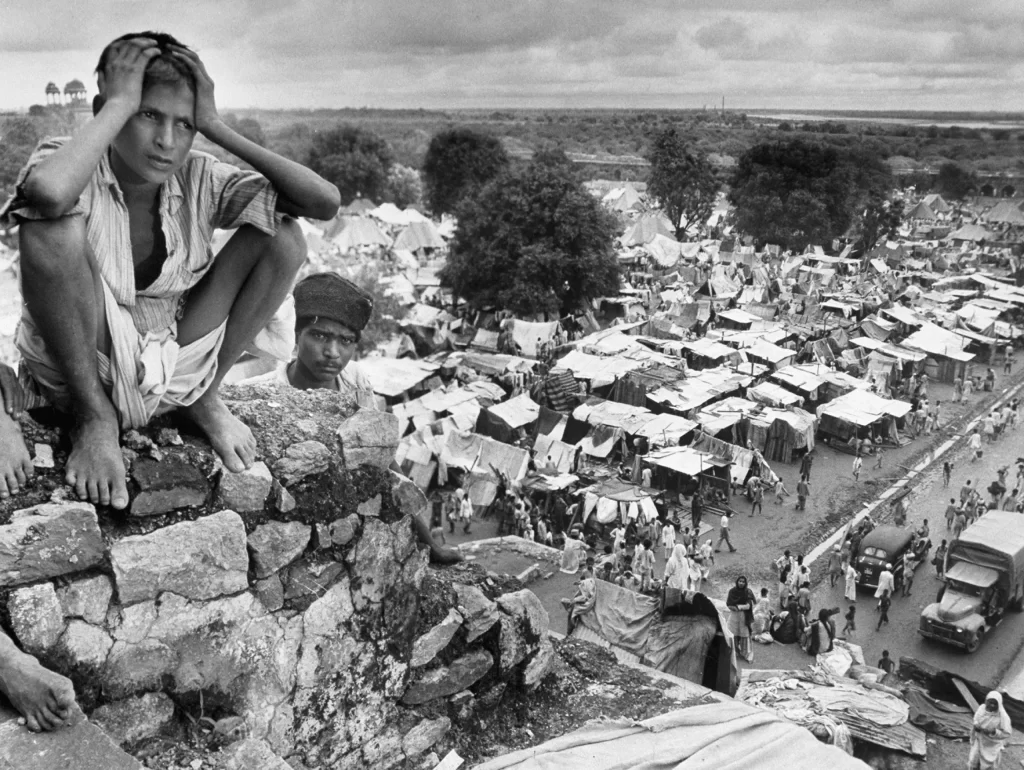Last night during a debate, one of my mates asked me a question about whether the separation was right or wrong. I turned my head towards him and my ears perked up to his prickling voice of “separation”. I asked him the separation of whom. He said, “separation of Sub-continent.” Heaving a cold sigh, besides this, my tongue is not giving side of mine,
I said that was not separation, that was a “division”. That was not just the division of land, that was the division of Humanity, brotherhood, trust, culture, love, and emotions. On both sides, the killing of humanity was incited, brotherhood was martyred and love was sacrificed. Once brothers became enemies forever. Evoking cherished relations slashed and resentments sprawled in the hearts. Sensations faded and fire of vengeance flared up.
Ahhhh! and we divided. Miss Ayesha Jalal depicted Hindu and Muslim politicians’ ideologies in her book “The sole spokesman: Jinnah ” and “Struggle for Pakistan”. But in return, she got a ban on the publication of her books. Mr. Ali Usman Qasmi wrote about the priorities of Muslim Leaders in his book ” Muslims against Muslim League”.
Our politicians won their battle of speech and we are bearing the brunt of their stubbornness. From our politicians to our institutions, everyone is corrupt. Everyone is running his own business to fulfill their wishes. Both sides are facing a constitutional crisis as De Jure and De facto sovereignty is in different hands. On one side “Establishment” is De facto sovereign while De Jure sovereign is “Public”, on another side “Prime minister” is De facto Sovereign while De Jure Sovereign is “President”.
Poor public on both sides, even smaller regions are raising voices of their independence, but these independent states are trying hard to bulldoze such thoughts which were once fighting wars and running movements of their independence. Our discussion is getting deeper. He asked me, whether anyone else is supporting my argument. A cold sigh again, and I said the intelligentsia of both sides said about this partition like Saadat Hassan Manto uttered “We are left only with the violence of partition” in his well-known storybook “Toba Tek Singh”. Khushwant Singh is known for his novel “Train to Pakistan”, which counts for the bloody split between India and Pakistan in 1947. On the book’s first page, he writes, “Muslims said the Hindus had planned and started the killing.
According to the Hindus, the Muslims were to blame. The fact is, both sides were killed. Both shot and stabbed and speared and clubbed. Both tortured. Both raped. A prolific obituarist, Singh wrote his epitaph before he died: “Here lies one who spared neither man nor God Waste not your tears on him, he was a sod Writing nasty things he regarded as great fun Thank the Lord he is dead, this son of a gun.”
Heaving Cold sigh again! A man like “Kuldeep Nayyar” who is well known for his love for Urdu, India-Pakistan brotherhood ambassador, and his book “Tales of Two Cities” in which he wrote with empathy and clarity about Partition, which changed countless lives, including his own, forever. Was it inevitable, I ask? Could its thirst for blood have been slaked by some means other than India’s division? Holding Jinnah and Nehru equally “responsible”, Nayyar explains the Partition was not inevitable, to begin with. The Cabinet Mission Plan held the promise of resolution but as events panned out and Nehru and Jinnah remained implacable, it became inevitable.
All ears are towards us, then he asked me a question, What will be the situation if the “division” of the sub-continent would not happen? I replied, that the Kashmir issue perhaps would not have existed and the tug of war between India and Pakistan over Kashmir would not have existed today, and nor China would have been occupying a part of Kashmir. Riots, mass casualties, and a colossal wave of migration would not have existed. Three wars on the issue of Kashmir would not have been fought between two warmonger countries.
Then, one of our mates got involved in this conversation and asked, How can we mitigate the impacts of that incident?
Our faces were getting shimmered, and I said, both sides should develop bilateral relations in trade, culture, and tourism. Both should develop strong diplomatic relations and solve the problem of Kashmir at the table. Both should adopt “No War” for at least the next 100 years and sign treaties. Both countries should reduce the Defence budget and should use it for sustainable development goals. Both sides should work for the development of the region and the downtrodden masses on both sides of the border.
